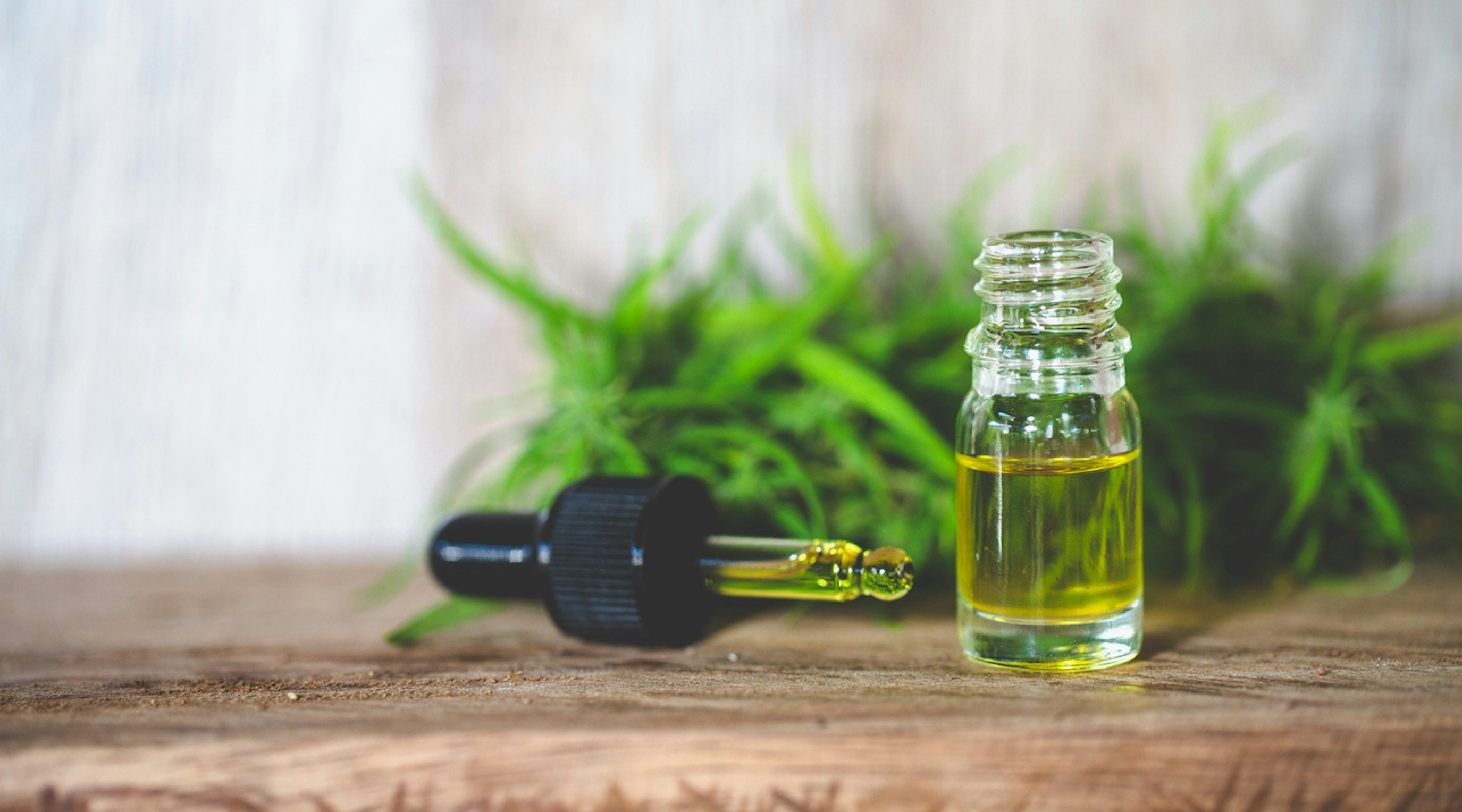New 'Zero THC' regulation for UK CBD products
7 min read
Sarah Sinclair
The Food Standards Agency (FSA)— the body responsible for the regulation of consumer CBD products in the UK—has hinted at ambitious new targets for CBD products in the UK market, which could see a push for zero detectable THC levels. But what would this mean for consumers, manufacturers and the UK industry as a whole?
Contents
UK CBD products
CBD (cannabidiol) is a non-intoxicating cannabinoid produced by the cannabis plant. Unlike pharmaceutical-grade medical cannabis, you don’t need a prescription to access over-the-counter CBD products in the UK.
CBD products can be sold and purchased legally from online retailers and high street shops, as long as they contain less than 0.2% THC (the psychoactive compound which is responsible for the ‘high’ associated with cannabis) or, 1 mg of THC per product container. They are now widely available in many different formats such as oils, gummies, patches and cosmetics.
How are CBD products regulated in the UK?
CBD products are regulated differently to cannabis-based medicinal products (CBMPs), which are only available on prescription.
The Food Standards Agency (FSA) is the government body responsible for the regulation of CBD products in England, Wales and Northern Ireland. Food Standards Scotland (FSS) oversees regulatory developments in Scotland.
Novel Food regulations
In January 2019, it was decided that the Novel Food Regulations reference to Cannabis Sativa L. should be extended to include cannabinoids, including extracts and derived products.
In February 2020, the FSA stated that all CBD manufacturers would be required to have a valid Novel Food application before the deadline of 31 March 2021, in order to continue being sold in the UK.
In December, the FSA’s CBD Policy Team published a new report on the current status of the Novel Food application process. This included a prospective timeline for the first authorisations, with the FSA expected to make recommendations on the first CBD applications in the Spring/Summer of 2025. Government ministers will be required to give their approval before the final authorisation comes into force.
THC levels in CBD products
THC is classed as a controlled substance and subject to control under the Misuse of Drugs Act 1971 and the Misuse of Drugs Regulations 2001. According to the FSA, Home Office guidance has confirmed that any level of THC present in a substance renders it a controlled substance under the Misuse of Drugs Act.
However, the report also notes that extracting pure CBD is ‘almost impossible’, and therefore ‘detectable levels of THC and other controlled cannabinoids CBD will be present’.
In a recent update to the drug licensing fact sheet for cannabis, CBD and other cannabinoids, the Home Office states that CBD products authorised for sale by the FSA, will be subject to a ‘1mg threshold’ for each controlled cannabinoid per container.
‘Zero detectable’ THC
During a board meeting, held by the FSA on 11 December, 2024, which included a discussion around setting limits on permitted THC levels, several experts suggested that the regulator could be moving towards a ‘zero THC’ approach.
According to reporting from Business of Cannabis, FSA Board Member Mark Rolfe, highlighted that achieving zero detectable THC and other illegal cannabinoids ‘is feasible’ through ‘advanced spectrometry methods’.
He went on to suggest ‘setting a clear regulatory expectation for zero detectable THC and other illegal cannabinoids in products’ in the interests of consumer safety.
Chair Susan Jebb also appeared to support this, adding: “The language in our guidance should strongly convey that the expectation is for undetectable levels, rather than a defined upper limit.”
The FSA’s Tom Vincent, who co-authored the policy report, responded by explaining that the acceptable levels in products are expected to be ‘significantly below the exemption level set by the home office’.
‘Zero THC’ CBD: what this means for producers and consumers
Clear and consistent regulations
Clear and consistent regulations around the permitted amount of THC levels in CBD for manufacturers will be welcome, particularly given the ‘delays, and uncertainty’ they have experienced throughout the novel food process, as a recent website post by the Cannabis Trades Association (CTA) highlighted.
Increased costs for producers
The requirement for zero detectable levels of THC in CBD products could be beneficial in ensuring regulatory compliance and reducing liability risk for companies. However, there are concerns that it may present significant challenges for those who will need to invest in advanced extraction and processing technologies to completely remove any traces of THC.
This will likely require costly equipment upgrades, more sophisticated testing protocols and stricter quality control measures. And these additional costs could burden smaller manufacturers, reducing market competition and limiting product innovation.
The CTA added that CBD businesses have faced ‘mounting costs’ in recent years, with many smaller operators ‘struggling to survive’.
Consumer clarity and legal assurance
For some consumers, certainty that CBD products contained ‘zero THC’ would offer a level of reassurance around their legality, product consistency, dosage, and accessibility for certain populations (such as those more sensitive to THC). It is also ideal for those who want to avoid trace amounts of THC due to regular drug tests.
Increase in CBD isolate
The move is likely to see more products made from CBD isolate on the market. These contain only pure, isolated CBD in its crystalline form, with no other cannabinoids or terpenes present. These can be ideal for those who want to avoid THC or are looking to ensure precise control of their CBD dosages.
However, there may be fewer options for those who prefer full-spectrum products. These contain the entire chemical profile of the source plant and benefit from the entourage effect.
Possible reduced therapeutic effects
The entourage effect is a well-known theory which suggests that when cannabis compounds are consumed together, they compliment each other's individual characteristics, and work together synergistically to have more beneficial effects on the body.
It is also important to consider how the lack of other cannabinoids in CBD products could impact the potential therapeutic effects consumers experience.
Looking forward
Establishing and implementing clear and consistent regulations is now crucial for the growth and stability of the UK CBD industry, whilst also ensuring that consumers can safely access the products that meet their needs.
A forthcoming eight-week consultation period, held by the FSA, has been welcomed by the industry as an opportunity for stakeholders to voice their concerns and have a say on the future of CBD regulation in the UK.
“For many, the hope is that this consultation will lead to a more nuanced approach—one that recognises the differences between product types and sets standards that are both scientifically robust and commercially viable,” the CTA said.
“There’s hope that with the right adjustments, the UK can finally establish itself as a global leader in the CBD space—balancing safety, innovation, and accessibility for all.”
Share article
Did you like this article?
It is important to seek medical advice before starting any new treatments. The patient advisors at Releaf are available to provide expert advice and support. Alternatively, click here to book a consultation with one of our specialist doctors.
Elevate your wellness with medical cannabis
Get comprehensive care, convenience, and confidence with an all-in-one treatment plan.
Am I eligible?Authors
Sarah, a distinguished journalist with over a decade in publishing and communications, now excels in cannabis health and policy journalism in the UK, advocating for informed health decisions through her award-winning work.
Editorial Policy
All of our articles are written by medical cannabis experts, guided by strict sourcing guidelines, and reference peer-reviewed studies and credible academic research. Our expert clinical team and compliance specialists provide valuable insights to ensure accuracy when required. Learn more in our editorial policy.
Need more help?










